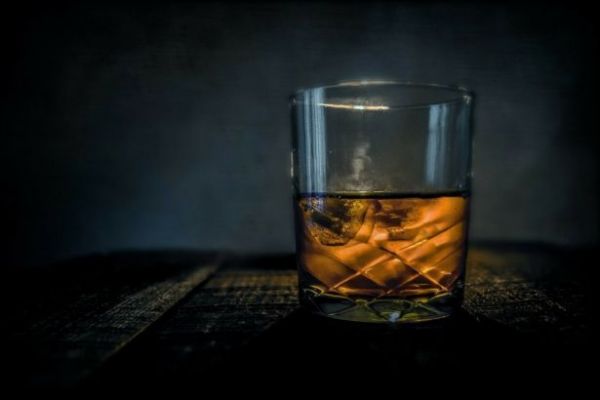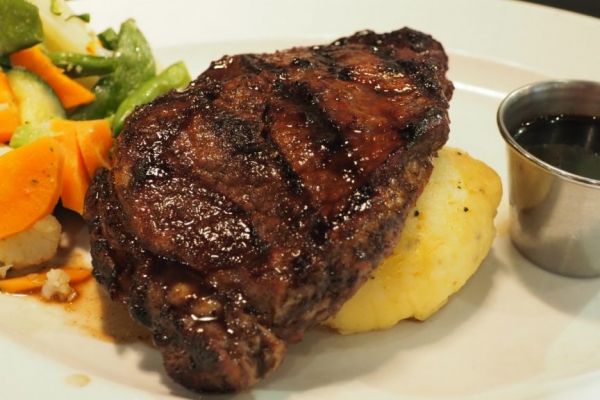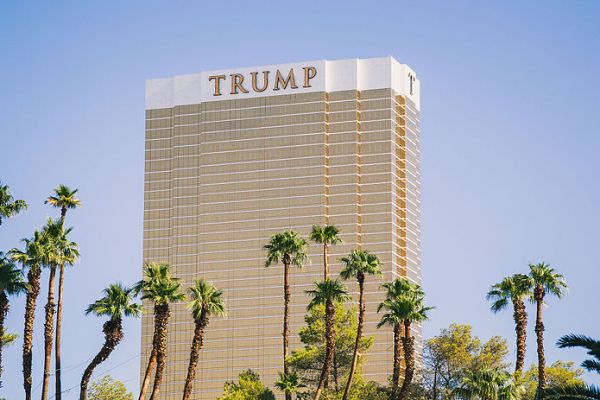In America, Election Day and drinking go together like gin and tonic, like Jack and Coke, like waking up the morning after elections and swallowing twice the recommended dose of ibuprofen. In our day—by which I specifically mean today, Nov. 8, the climactic point of an historically putrid campaign season—American citizens have greater reason than ever to seek adult refreshment. It’s the patriotic thing to do, as it involves participating in a national tradition older than the nation itself.
“Treating the public to alcohol at elections was a colonial custom borrowed from England,” noted psychopharmacologist Ronald K. Siegel writes in his book, Intoxication: The Universal Drive for Mind-Alerting Substances. George Washington failed to respect this tradition in his 1755 run for colonial Virginia’s House of Burgesses. Voters rebuked his lack of hospitality. Bravely refusing to make the same mistake twice, Washington embraced business as usual. In 1758, Siegel writes, “Washington gave away 144 gallons of rum, punch, wine, hard cider, and beer; he received 307 votes, better than 2 voters per gallon.” The rest is advanced placement U.S. History.
In the 1800s, early days in the U.S., the connection between the ballot and the bottle grew only stronger. The middle of that century witnessed an epidemic of “cooping,” recently described by Atlas Obscura as a get-out-the-vote operation in which “violent gangs would kidnap voters, feed them alcohol or drugs and force them to vote multiple times dressed in various disguises.” Around the same time, New York's Tammany Hall and its ilk worked hard to put the party into party politics, with ward bosses regularly running polling places out of their own saloons.
If the current Clinton-Trump contest has you longing for the days when you could simultaneously exercise your franchise and metabolize your alcohol, I humbly nominate the old-fashioned cocktail.
This is both a stiff drink and an elementally beautiful one. "It’s one of the core classic cocktail structures," explained Gates Otsuji, chef de bar of New York's Standard Hotels. "When you consider the old-fashioned, it’s like looking back through time."
This dynamic is especially true at election time. When the word cocktail first emerged in print, it was to describe this drink—a debut that came in the context of casting votes. In 1806, the editor of a Hudson, N.Y., newspaper called the Balance and Columbian Repository replied to a reader confused about a recent passing reference to “cock-tail”:
"Cock-tail, then is a stimulating liquor, composed of spirits of any kind, sugar, water and bitters. It … is supposed to be an excellent electioneering potion inasmuch as it renders the heart stout and bold, at the same time that it fuddles the head. It is said also, to be of great use to a democratic candidate: because, a person having swallowed a glass of it, is ready to swallow any thing else."
For another thing, the tradition of the old-fashioned is small "d" democratic: diverse and pluralistic. Though typically made with rye or bourbon, it will work with pretty much any spirit as its base; famous alternates include brandy, rum, and the applejack that kept Washington’s troop toasty at the Delaware River. It can also be engineered to taste swell with pretty much any sweetener (short of Splenda) or liqueur (except for, like, Midori) substituted for the sugar.
Further, it is one of those cocktails that are perfectly acceptable to build in the glass, which is, of course, an old-fashioned glass. (In his 2014 book, The Old-Fashioned, Robert Simonson relays a quote from an old-school Washington bartender calling the drink a “foundation stone of our national independence [which] richly deserved the distinction of its special heavy-bottomed glass.”)
In pointing out the propriety of setting aside the mixing glass, I’m trying also to hint that the old-fashioned will withstand the home bartender’s lack of attention to quality control as election night proceeds. Like the Republic itself, it soldiers on.
Three Variations on the Old-Fashioned
Old-Fashioned Whiskey Cocktail
2 oz. rye or bourbon whiskey¼ oz. simple syrup2 or more dashes Angostura bitters and/or orange bittersGarnish: Lemon twist or orange twist or, in the best of all possible worlds, both.
Pour bitters, syrup, and whiskey into an ice-filled old-fashioned glass and stir. Add citrus twist(s).
Applejack Old-Fashionedadapted from Robert Simonson’s The Old-Fashioned
2 oz. Laird’s 100-proof apple brandy¼ oz. Grade B maple syrup2 sashes Fee Brothers whiskey barrel-aged bittersGarnish: Orange twist
Mix the syrup and bitters at the bottom of an old-fashioned glass. Add the applejack. Stir. Add one large chunk of ice and stir until chilled. Twist a large piece of orange zest over the drink and drop it into the glass.
Oaxaca Old-Fashionedby Phil Ward
1½ oz. El Tesoro reposado tequila½ oz. Del Maguey San Luis Del Rio mezcal2 dashes Angostura bitters1 bar spoon agave nectar
Garnish: Orange twist
Combine all the ingredients except the orange twist in an old-fashioned glass filled with one large ice cube. Stir until chilled. Top with a flamed orange twist, then drop the twist into the drink.
News by Bloomberg, edited by Hospitality Ireland









